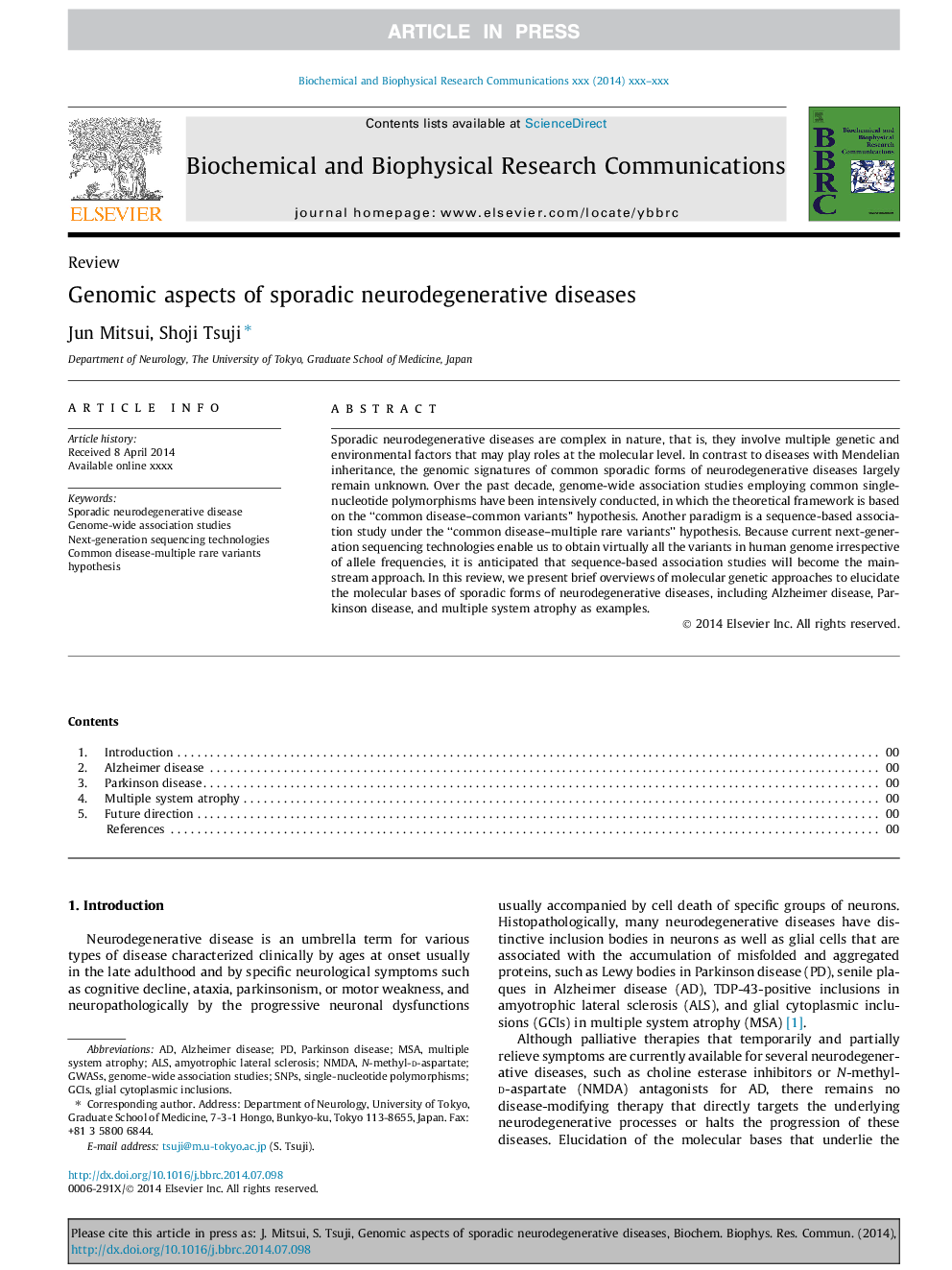| Article ID | Journal | Published Year | Pages | File Type |
|---|---|---|---|---|
| 10753495 | Biochemical and Biophysical Research Communications | 2014 | 5 Pages |
Abstract
Sporadic neurodegenerative diseases are complex in nature, that is, they involve multiple genetic and environmental factors that may play roles at the molecular level. In contrast to diseases with Mendelian inheritance, the genomic signatures of common sporadic forms of neurodegenerative diseases largely remain unknown. Over the past decade, genome-wide association studies employing common single-nucleotide polymorphisms have been intensively conducted, in which the theoretical framework is based on the “common disease-common variants” hypothesis. Another paradigm is a sequence-based association study under the “common disease-multiple rare variants” hypothesis. Because current next-generation sequencing technologies enable us to obtain virtually all the variants in human genome irrespective of allele frequencies, it is anticipated that sequence-based association studies will become the mainstream approach. In this review, we present brief overviews of molecular genetic approaches to elucidate the molecular bases of sporadic forms of neurodegenerative diseases, including Alzheimer disease, Parkinson disease, and multiple system atrophy as examples.
Keywords
Related Topics
Life Sciences
Biochemistry, Genetics and Molecular Biology
Biochemistry
Authors
Jun Mitsui, Shoji Tsuji,
